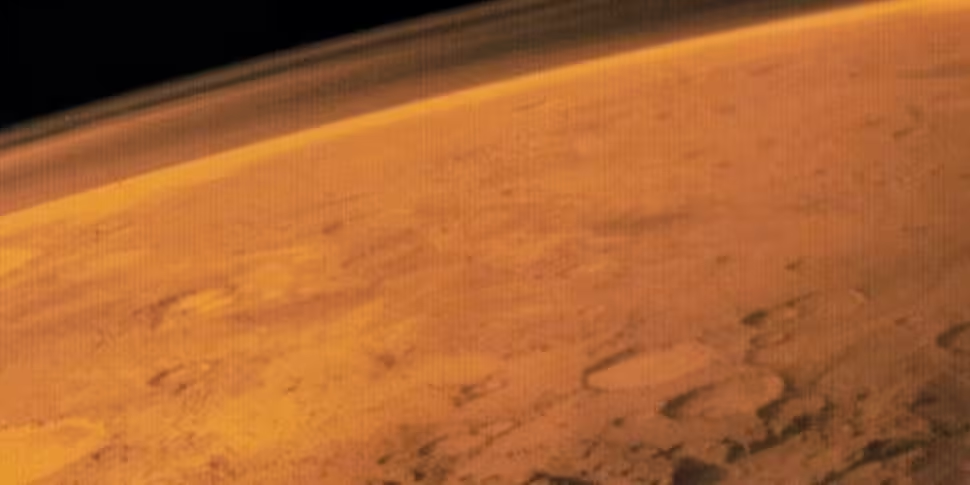The acting administrator of NASA says it's a "very exciting time" in the space industry, with his agency aiming to get a crew to Mars in the 2030s.
Robert M Lightfoot Jr was in Dublin this week to meet space researchers in Trinity and UCD. During the trip, he spoke to Jonathan Healy on The Pat Kenny Show about his agency's current and future plans.
Mars, it goes without saying, remains the next great goal in space exploration.
Robert explained: "Right now we're working on trying to get there in the 2030s, with crew. We're building off what we're doing in the International Space Station - we're using that to do research on humans and the technologies we'll need to go further into space.
"Hopefully in the decade of the 2020s we'll take those systems out in an area around the mean, so we can really test them out [...] before we embark onto the mission to Mars."
The space industry in the US has grown surprisingly competitive in recent years. Commercial companies such as SpaceX, Blue Origin and Virgin Galactic are all building technologies to help humans travel beyond Earth.
Robert very much welcomes these companies getting involved.
"We do work together," he observed. "I think there's a very complementary activity. We think there's a role for NASA as a government entity, in terms of doing some of those things that are out there a little further.
"We're using SpaceX today to get to the International Space Station with cargo, and they're going to be flying our crew soon. It's an exciting complementary activity between us - it's a very exciting time to see industry stepping up the way they are."
He also spoke about the importance of international co-operation, explaining: "Part of my goal today is to be here in Ireland, and meet with some of the students who are hopefully following in our footsteps to take up that mantle along the road.
"[Space exploration] has gotta be a global endeavour. If you think about what we're trying to do, we're talking about civilisation-level impacts with the kinds of science we do, with the kind of exploration we do."
"Our job is to keep people inspired"

The SpaceX Falcon 9 rocket, with the Dragon spacecraft onboard, launches from pad 39A at NASA�s Kennedy Space Center in Cape Canaveral, Florida. Bill Ingalls / NASA via CNP
The US has drawn international condemnation recently for the Trump administration's approach to climate change - most notably when the US president announced his intention to withdraw from the Paris Accord.
Where does such an administrative hostility to overwhelming scientific consensus leave NASA - a science organisation whose core objectives include monitoring & reporting on changes to our planet?
Robert explained: "Our job in that arena - and our job continues to be - to provide that data to the decision-makers so they can make decisions what we want to do from a policy perspective.
"The data coming down is real, so we're very comfortable with the data we're providing. That's for us what we should do as a science organisation - to make sure we're providing the right data."
He also discussed what many believe is one of the great challenges of space travel - keeping enough people interested in space travel in the first place.
Robert doesn't seem worried by such concerns, telling Jonathan: "I think it's kind of written in our DNA as humankind - we want to explore. Think about all the different levels of exploration you can think of in history - whether it's Mount Everest, whether it's crossing the Atlantic, whether it's going around Africa for the first time."
He spoke about the recent search for people to join NASA's 2017 astronaut class.
"We had 18,000 people apply for those 12 jobs," Robert said said. "There's an excitement to go do that, and I believe one of those people may the one who goes to Mars.
"Our job is to keep people inspired, and I think our missions inspire people."
Ireland has never sent someone to space, so what would Robert say to anyone young people hoping to become the first Irish astronaut?
"This is the best job you could ever have," he insisted. "There's such a depth of understanding and learning that you get working in space.
"I tell kids in the States... 'we want you to come and join us, because we're trying to make the impossible possible' - and there's nothing better to be part of".









